Zarb: Of jazz and jugalbandis
Zarb, an event celebrating the fusion of jazz and classical music, took place at the Arts Council on June 13.
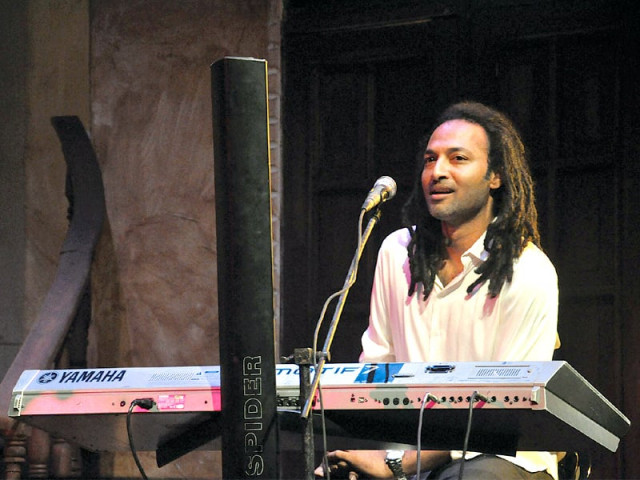
Whenever we talk about musical traditions and their cultural implications, different genres come to mind. Be it rock and roll or the blues, there are scores of artists who have been influenced by them. Similarly, one of the most important traditions in musical history is jazz; it has its fans and followers all around the world.
Jazz music originated in the beginning of the 20th century, in African American communities in the southern United States. Some of the legendary musicians that made jazz what it is today are Louis Armstrong, Scott Joplin and Dave Brueback.
Pakistan also has its set of jazz music lovers and their romance with the musical tradition was unveiled at an evening of jazz fusion on Monday, June 13. Zarb was organised by the National Academy of Performing Arts (Napa) and Arts Council Karachi. It featured some of the best musicians of Pakistan, including Ustaad Bashir Khan on the tabla, Ustaad Nafees Ahmed on the sitar, Emu on the keyboard, Afaq Adnan on the guitar, Khalid Khan on the bass guitar and Jason Anthony on the drums.
Before the magic actually began, Napa’s programme director Arshad Mehmud appeared on stage along with Arts Council’s general secretary Ahmed Shah. Both of them were optimistic about the country’s turbulent circumstances. “We know that things have been bad in Pakistan, but they can only get better from here. As artists, we are compelled to perform no matter what is happening around us,” said Mehmud.
The curtain opened with Ustaad Ahmed in a red fedora with his sitar and Ustaad Khan in a pair of jeans, in front of a tabla - an ideal way to begin. The night began with a fusion of a Sindhi kaafi with Lionel Richie’s “Hello”. Beautiful sitar notes accompanied by a stirring sangat on the tabla took the audience on a musical journey; the fusion was near perfect.
Next, pop musicians joined hands with the classical maestros. The result of that collaboration was a once-in-a-lifetime experience for Pakistani audiences. In the jam session, the musicians played an instrumental called “Summery Nights”. This was received well by the audience, who vociferously cheered for the musicians. Adnan’s phenomenal ability to play the guitar like a saxophone, very much like Allan Holdsworth’s, makes him one of the most under-rated guitar players of the country. Whereas Ustaad Ahmed played the sitar to perfection; whenever he struck a chord, the audience cheered for him. Emu, who needs no introduction, displayed his command on jazz by pulling in the reigns whenever the band went over board.
After performing another fast and upbeat ensemble called “Change”, in which individual solos were showcased, a jugalbandi of the drums and tabla began. This was a refreshing performance which showcased drummer Jason’s talent with the snares, while Ustaad Khan responded with an eastern rendition of the same beat. By the end of this performance, it was clear that Ustaad Khan stole the show.
After that Emu, Ustaad Ahmed and Khalid spread the magic in an extraordinary performance of “Take 5”, an instrumental by Dave Brueback.
For the final performance of the night, Adnan joined them in an original piece called the “Streets of Karachi”. Not a single word was sung during the performance, yet the music spoke of hope, festivity and celebration which surrounds the city of lights.
Though the performance started late and may have been slightly dull for people not used to instrumentals, it was the best live performance of jazz fusion music in the city to date. The artists have the potential of representing Pakistan on any platform for jazz enthusiasts.
Published in The Express Tribune, June 15th, 2011.

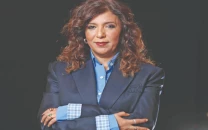
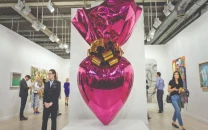

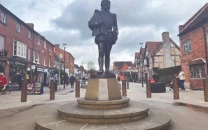
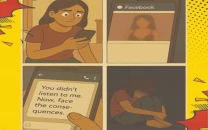
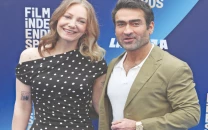












COMMENTS
Comments are moderated and generally will be posted if they are on-topic and not abusive.
For more information, please see our Comments FAQ